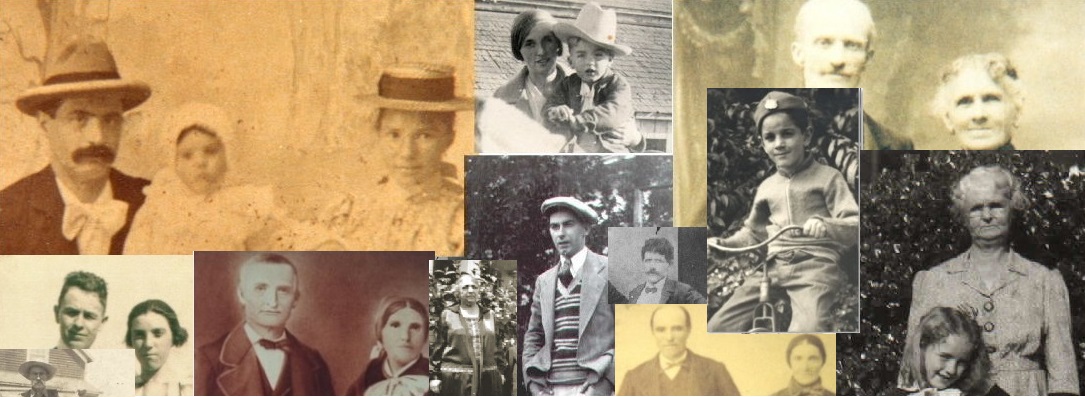Randy Seaver’s Saturday Night Genealogy Fun Challenge is posted at Genea-Musings. This week the topic is “If I had know then, what I know now…” Boy, I sure could write volumes on this!
There are a couple of things I wish I had know back when I started genealogy…
1. How to Organize Digitized Records so as to find them and not be overwhelmed. When I first started my family tree sometime around 1988-1990, there was one digitized database–the Social Security Death Index. I remember accessing it through a company called CompuTrace.
As the years went by more and more companies put records on the web and I devoured every new database I could find. The problem was I did not foresee how I would need to find records in the future on my computer. It wasn’t a big problem when all I had was Ellis Island, SSDI, 1930 Census, and California Death Index folders. I never dreamed that that categorizing records by type would make them more difficult to find on my computer as my family tree grew. I never dreamed that my perspective would change and that I would find better ways of filing documents, thus leaving me with a multitude of systems.
I am currently in the process of reorganizing my digitized records based on family groups rather than record type. This is the way my genealogy binders are set up. It makes sense to me to look for something by person rather than by document type, especially since my binders are the same way.
2. Names are not what they seem. Do you remember when you first started researching your family tree and what your Grandmother told you was law? I do! I remember also believing that names were finite. If you were born as “Melody Lassalle”, why on earth would you be found in records under any other name? You can stop laughing now, you experienced researcher, you!
In accordance with this, I learned that in earlier years people weren’t so darned attached to their names. A person might be born as William and somewhere along the way start using John. A Portuguese woman used religious names similar to how we use surnames. But, she might not keep it all her life. She might be Maria dos Anjos as a teen and die as Maria da Conceicao.
I think this may have been the hardest lesson to learn. I often see it repeated withing the genealogy community amongst beginners. “Oh no, Grandpa’s name was Joseph, not Jose!” “Grandma was named Daisy.” (Or Mary, or Suzie, or whatever)
What I learned was that people could have many names, many variations, many nicknames, and so forth. They might have an English name that has been translated from the Portuguese. The Daisy above was really Theresa.
I learned that there are no Marys in the Azores. They are all Maria, Mariana, or some other form, but never Mary!
I learned that spellings do vary by language and even by time period. Manuel may be what the Spanish use, but Manoel is the Portuguese spelling. Joao is the same as Joao but it’s also the modern Portuguese form of Joam.
Even surnames could have multitudes of spelling variations. Rules might change over the decades or a person might Americanize their surname to fit in or to cover up a family secret.
If I had known all this when I first began, I would have been saved alot of frustration looking for people under their exact name.
3. If I had known that newspapers would fill in the gaps left by the loss of records after the 1906 earthquake and fire, I would have started researching them alot earlier. I am now having the time of my life searching the San Francisco Call, San Francisco Chronicle, and the Daily Alta. There are issues going back to the 1850 indexes online. I’ve unearthed so many family details that my Kelly & Dolan lines are as rich as my Pacheco & de Braga’s in detail.
4. Language is not a barrier. I was terrified of working in the Portuguese language records. I didn’t know any foreign languages. Knowing numbers in Spanish really wasn’t going to help.
But with some help from vocabulary aids and other Portuguese genealogists, I learned that church records fall into a format. Once you learn the format for an era, you can pick out the important details without having to translate word for word.
Then I learned that Latin church records sounded alot like Portuguese church records. And, the French records were the same. Word roots are incredibly similar. Once I got the Portuguese down, I could pick out the salient phrases in the Latin and French records. I am not fluent in any of these languages, but similarity between wording has helped me work through them all.
I put off Portuguese research for about 3 years before I jumped in. Now I would same Portuguese research is 10 times easier than Irish.
5. Patience really is a virtue and research can be painstakingly slow. My first couple of years I went off like a bang (once I got all my Grandma’s incorrect details straightened out). About 4-5 years into research, I hit a wall on every line. I got really frustrated and took a year off. Then I sat down and wrote the questions I really wanted answered and went back to the FHC looking for records that might answer them. Research isn’t always like the beginning when you fill in one family after another. It’s more like spending 6 months and learning a name and then spending another 6 months to find the spouse. But, if you keep at it the records will eventually reveal themselves.
If I had known all these things starting out, I probably could have saved myself some grief. Then again, I am sure I would have found something else to jumble.






